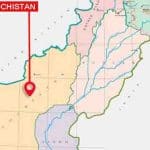KARACHI, Jul 22 (APP): The Sindh Cabinet in continuation of the last cabinet meeting discussed and decided on 40 more agenda items on Saturday and took important decisions including approval of the Medico-legal act, Immunization Act in which denial has been made an offense, also approved water policy and upgraded hospitals.
The meeting was chaired by Sindh Chief Minister Syed Murad Ali Shah here at CM House and was attended by provincial ministers, advisors, special assistants, Chief Secretary Sohail Rajput, Advocate General Hassan Akbar, Chairman P&D Hassan Naqvi, PSCM Fayaz Jatoi, and other concerned officers.
The Cabinet discussed and decided on nine agenda items for the health department under which important bills were approved and referred to the assembly.
The health department told the cabinet that presently, the Medicolegal Services in Sindh were unorganized with no service structure, job descriptions, SOPs/Guidelines, Performance Management Framework, and Key Performance Indicators. Consequently, the actors of the Criminal Justice System, namely the Police and Judiciary face problems in prosecution and conviction. This has created an urgent demand for substantial changes in the legal framework of Medicolegal Services, for which different forums such as UNWomen, Legal Aid Society, and the Gender Crime and Human Rights Department have raised concerns. Therefore, the health dept has decided to strengthen the Medico-legal system on modern scientific grounds.
The objectives of the proposed bill are to regulate the Medicolegal System, including its administration, examinations, and postmortems conducted in the different health facilities of the province through the establishment of the Sindh Medicolegal Directorate.
The Cabinet approved the act and referred to the assembly. .
The Cabinet was told that Children of Adam, Karachi and the health dept have requested that cabinet may allocate Rs. 1.967 billion as Grant-in-Aid for five years to establish psychiatric facilities at three government Hospitals – Basic Health Unit Dumba Goth, New Urban Health Center Gadap and New Karachi Urban Health Center Goharabad.
The Cabinet was told that a large segment of the population in the country has suffered from some mental illness.
Unfortunately, there was a dearth of psychiatrists and psychiatric hospitals.
There are only five major Psychiatric hospitals to cope with major mental health disorders, depression, autism, anxiety, and obsessive-compulsive disorder in Pakistan.
Hence, considering the issue, Children of Adam signed a MOU with the Sindh Health Department for creating psychiatric facilities at BHU Dumba Goth, New Urban Health Center Gadap, and New Karachi Urban Health Center Goharabad. The cabinet approved the proposal.
Mehar Hospital handed over to GIMS: The provincial cabinet decided to hand over Mehar taluka Hospital to Gambat Institute of Medical Sciences for five years to upgrade the facility and improve its services.
Minister Zakat and Ushr Fayaz But told the Cabinet that he had visited taluka hospital Mehar, District Dadu, and found that it required major renovation and necessary medical equipment for its smooth functioning.
Butt and the health department proposed to hand over the taluka Hospital Mehar to Gambat Institute along with a Rs 563 million budget for rehabilitation and renovation of the hospital. The cabinet after discussion decided to hand over the hospital to Gambat Institute for the next 10 years for its smooth functioning for the people of the area.
The Cabinet was told that the PPHI has made a request for renewal of MoU between PPHI and Health Dept. The PPHI was given 1380 Health facilities (HFs) out of which, PPHI took management control of 1242 HFs. The rest 138 HFs were not taken by PPHI due to the non-availability of sufficient funds.
At present PPHI is managing 1242 HFs in Sindh. In addition, the Health dept has also handed over 89 HFs to PPHI by signing different addendums to the existing MoU. They include eight HFs of District Larkana; Five HFs of East Karachi; 34 HFs of Malir; 23 Jamshoro and 19 RHCs of various districts.
Since the existing MoU of 1242 HFs expires on 5th December 2023, PPHI has now prepared an MoU containing the list of 1331 (1242+89) HFs. The PPHI has also incorporated administrative and financial aspects of the Accelerated Action Plan (AAP) in the draft MoU.
The Cabinet renewed the MOU expiring in December 2023 for another five years and also approved Rs16,906 million.
The main objective of the Sindh Immunization and Epidemic Control Act 2023 is to enact a law to prevent and control epidemic diseases in the province through immunization and vaccination.
Under the Act, the parents or guardians of unprotected persons are responsible to bring them to Vaccination Centre in time to be vaccinated as per provided schedule. If the local authority finds that an unprotected person or parent or guardian has contravened the provisions of this Act, he/she shall deliver a notice to such person, parent or guardian requiring him to comply.
If the notice is delivered to the unprotected person, his parent, or guardian and is not complied with, the local authority shall report to the Magistrate of the First Class, for punishment as per provided under the Act in case of noncompliance thereafter.
The Cabinet approved the bill.
The DHQ Hospital Badin was outsourced to the Indus Hospital in 2015 for 10 years. The Indus Hospital management has requested that the existing budget allocation for DHQ Badin is not sufficient and needs to be enhanced. A private firm – M/s Ferguson has worked out DHQ Hospital Badin budget for the remaining four years as well as identified Rs. 1.106 billion as a liability (2018 to 2022) spent by the Indus Hospital as bridge financing. The cabinet approved the four-year budget (2022-24 to 2025-026) of Rs9.06 billion,
The main objective of the `Sindh Faculty of Paramedical & Allied Health Sciences Act-2023’ is to establish a faculty in order to supervise/conduct paramedical courses/training and their certification as well as registration of paramedical and allied professional health sectors.
It is expedient to establish the Sindh Medical Faculty for the purpose of giving it necessary autonomy, raising its standard of training, examination, and research, and improving its administration and regulating, promoting and streamlining the education, training, examination, and registration of paramedics and allied health professionals pertaining to preventive, promotive, curative, rehabilitative, environmental and occupational health sectors in the province. The cabinet approved the bill.
The Cabinet was told that an academic delegation from the University of Medica Science Zahedan recently visited Karachi. During the visit, they signed three separate MOU with the Health dept; Jinnah Post Graduate Medical Center (JPMC); and Aga Khan University of Karachi.
The cooperation areas of the MOU include the Exchange of students, faculty, and researchers for academic and cultural enrichment. The Health Dept will conduct a short training course on entomological surveillance of dengue fever vectors for the entomological expert delegation from Zahedan University of Medical Sciences.
Medical doctors and specialists with experience in the treatment of patients with dengue fever will conduct a training workshop on the diagnosis, treatment, and nursing care of dengue fever in Zahedan, Iran.
Virtual; and in-person expert meetings will be held in order to exchange experiences regarding malaria elimination and tuberculosis and vaccine-preventable disease control activities.
Considering the high incidence of beta-thalassemia in Sindh and the success of the thalassemia disease control program in Iran and the successful activity of the prenatal diagnosis laboratory (PND) of Zahedan University of medical science, an expert team from the Sindh Health dept will visit ZAUMS in order to exchange experiences and explore areas for cooperation regarding beta thalassemia control program in Iran. The cabinet approved the MOUs for materializing it cooperation.
The Cabinet approved Rs6 billion grant for Gambat Institute of medical science and appreciated the services of Dr Bhatti, the Executive Director of the institute.
The objective of the Sindh Water Policy Framework is to provide clear policy directions to the Government of Sindh on the ecologically sustainable management and development of the provincial water resources from all sources of water, including surface water, groundwater, and wastewater and for all sub-sectors of water use -domestic, agriculture, industry, commercial and environment at the basin level for the prosperity of people of Sindh.
Minister Irrigation Jam Khan Shoro said that the specific objectives were to slow and halt or reverse the processes of degradation of water resources (surface and groundwater) and Rehabilitation of the Indus Delta. He added that it would ensure the long-term sustainability of the ecosystems’ ecological support characteristics. Maintain the full range of beneficial uses of water resources and maximize the economic benefit to the canal command or river basin, province, and country.
The Sindh Water Policy Framework is designed to establish the objectives and principles for the management of basins covering all sources of water and all sub-sectors of water use.
A coordinated program for Water Policy Framework formulation, Reporting, Review, and Future Adaptations; Tools and instruments for implementation of Water Policy Reform Areas (Component Policies); and Opportunities for information sharing.
The Sindh Water Policy Framework would guide the decision-making of the Provincial government, Local government, as well as Water users in their management and use of water resources (surface water, groundwater, and wastewater).
It would further influence the type and selection of basin management actions and water resource development opportunities supported by the provincial water resource management Experts, Managers, and Service providers.
The cabinet discussed the policy in detail and approved it. .
Minister Energy told the cabinet that K-Electric has claimed Late Payment Surcharges against Sindh govt connections amounting to Rs 10-12 billion.
Under NEPRA rules, KE and all other Discos are required to clear the electricity dues correctly, based on meter reading only, and in case of a meter fault, the bills are to be charged on an average basis for Rs2 billing cycles ( i.e two months). But, it was observed that KE billed the govt connections on an average basis for many years. This all becomes due to a decentralized payment mechanism, wherein, each govt department at its own level had to clear electricity dues.
A Power Supply Agreement was made between Karachi Water & Sewerage Board and K-Electric in the year, 2019 under which the Late Payment Surcharge would be calculated from the 60th day of the due date for payment set out in the payment of the invoice till the actual date of payment.
Imtiaz Shaikh pointed out that, in the year 2022-23, SEPCO has paid the duty amounting to Rs: 280 million, whereas, HESCO has paid the duty amounting to Rs: 400 million. He added that K-electric has not paid any electricity duty and said that the Electricity duty would be adjusted against the outstanding amount of Rs. 7,813 million against KW&SB.
K-electric filed a suit in the Court, subsequently; the Court passed orders by directing the Local Government to pay the outstanding reconciled electricity dues of KW&SB to K-Electric by devising a payment schedule.
The cabinet directed the Energy Department to sign an agreement with K-Electric and resolve the issues.
The Cabinet was told that the SECMC is a joint venture between Sindh govt, Engro Energy Ltd, and affiliates for coal mining in block II of Thar coalfield.
An agreement was executed between SECMC and the Sindh govt in November 2015 for the development of 3.8 mtpa extendable up to 7.5 mtpa coal mining in Block-II. On the proposal of SECMC, the Cabinet approved amendment(s) in relevant clauses from 7.5 beyond i.e. 30 mtpa.
Follow the PNI Facebook page for the latest news and updates.








